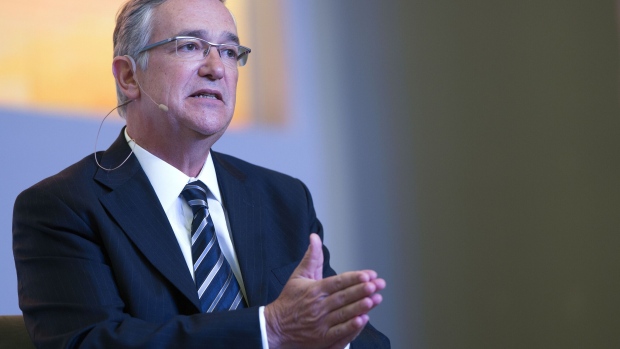Mar 7, 2023
Billionaire’s Mexican Cable Company Debt Sinks Into Distressed
, Bloomberg News

(Bloomberg) -- Bonds of Total Play Telecomunicaciones have fallen to distressed territory as investors weigh whether the cable provider owned by Mexican billionaire Ricardo Salinas is spending too much to expand as debt payments approach.
The yield on notes due in 2025 rose above 22% Wednesday after nine-straight days of selling pushed the price down 20 cents to 71.5 cents on the dollar, according to Trace data. Bonds due in 2028 trade for around 69 cents on the dollar, as of Tuesday.
The selloff — which has saddled investors with losses of more than 19% since it began on Feb. 24, the worst performance in Latin America — adds to mounting concerns about Salinas’s companies. His broadcaster, TV Azteca, defaulted on $400 million worth of dollar bonds in 2021, though it continued to pay on its local debt.
Last week, Azteca bondholders were notified a Mexican judge temporarily froze their attempts for payment collection, Bloomberg reported.
Read: Bonds of Billionaire’s Mexican Cable Company Sink to Fresh Low
Salinas has built a net worth of around $11.2 billion, according to data compiled by Bloomberg, mostly through his conglomerate Grupo Elektra, while also controlling closely held Total Play as well as security and energy companies.
Read: Mexico’s ‘Uncle Rich’ Tweets His Wealth as Others Guard Privacy
A company spokesperson blamed the bond performance on the high interest rate environment and called Total Play’s results “extraordinary.”
“The recent bond prices situation answers exclusively to the Fed’s decision of raising interest rates,” Rolando Villarreal-Soriano, an investor relations spokesperson for Grupo Salinas and Total Play, wrote in an email response to Bloomberg. “Bonds are extremely sensitive to these decisions, so when interest rates go up, the price of fixed-interest rate bonds goes down.”
Capex Increases
The bond rout began after Total Play announced fourth-quarter earnings on Feb. 23. While the company delivered strong revenue and margins, analysts noted that it blew past the 2022 and 2023 capital expenditure estimates it had set the previous quarter and failed to meet its own cash burn guidance.
It announced it would increase capex to a range of 15 billion to 17 billion pesos ($830 million to $940 million) this year from a previous target of around $550 million. The company has set a goal of adding 1 million net subscribers to its current base of 4.3 million as it competes with rivals Grupo Televisa and Megacable Holdings.
Barclays analyst Megan McDonald recommended selling the bonds, saying the cash burn was too high considering it faces more than $1 billion of debt and other short-term liabilities.
Total Play “will need to evidence that it can provide consistent and accurate capex and cash flow guidance, and be transparent in terms of its business strategy, in order to improve investor perception and build confidence with the market,” McDonald wrote in a March 1 note.
Chief Financial Officer Alejandro Rodriguez told analysts in a conference call on Feb. 24 that the company would slow its expansion into new cities and may spend less if it doesn’t hit its subscriber target. Rodriguez said the company planned to raise $200 million to $300 million of secured lending through an international bank to cover most of its refinancing needs this year.
Dwindling confidence in Latin American borrowers has also added to Total Play’s woes. A series of defaults among Mexican non-bank lenders since 2021 and the sudden collapse of Brazil’s Americanas SA this year have soured the mood in credit markets, locking companies out of the market and pushing investors to become more selective.
Read: Americanas Crash Halts Several Brazil Corporate Bond Sales
While results showed the company’s business model is working, the worsening outlook for corporate debt in Latin America has added pressure to the bonds, according to Roger Horn, a senior strategist at SMBC Nikko Securities America in New York.
“Total Play’s results confirmed that the ‘if you build it, they will come’ business model of laying out a fiber optic network has actually worked — new subscriber adds actually looked pretty good,” Horn said. “The issue for the bonds is that it feels like we’re going into a Latam credit crunch. So any issue, like free cash flow expectations, makes investors nervous.”
(Updates prices in second and third paragraph; adds context in final two paragraphs.)
©2023 Bloomberg L.P.





